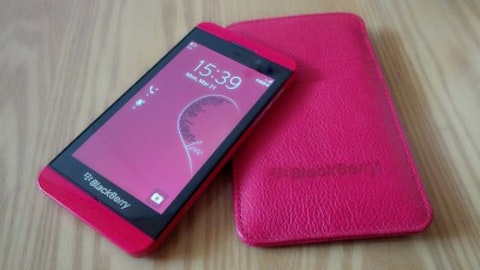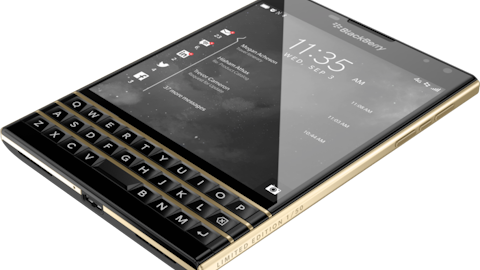With the NASDAQ up modestly in afternoon trade, Blackberry Ltd (NASDAQ:BBRY)’s stock has slid by over 5% on the back of the release of financial results for the second quarter of fiscal year 2015. The technology company reported a loss of $0.13 per share, versus expectations of a loss of $0.09 per share. The company’s revenue was $490 million, significantly lower than the estimates of $611 million. Despite such weak results and amid a 38% drop of the stock, hedge funds seem to like Blackberry, as they held over 15% of the company at the end of June.

We mention the hedge fund sentiment towards Blackberry Ltd (NASDAQ:BBRY) because our research has shown that historically their stock picks delivered superior risk-adjusted returns. This is especially true in the small-cap space. The 50 most popular large-cap stocks among hedge funds had a monthly alpha of about six basis points per month between 1999 and 2012; however the 15 most popular small-cap stocks delivered a monthly alpha of 80 basis points during the same period. This means investors would have generated 10 percentage points of alpha per year simply by imitating hedge funds’ top 15 small-cap ideas. We have been tracking the performance of these stocks since the end of August 2012 in real time and these stocks beat the market by 60 percentage points (118% return vs. the S&P 500’s 57.6% gain) over the last 36 months (see the details here).
Follow Blackberry Ltd (NYSE:BB)
Follow Blackberry Ltd (NYSE:BB)
Receive real-time insider trading and news alerts
Blackberry Ltd (NASDAQ:BBRY)’s hardware division revenue was weak, with sales of $200 million, compared to analyst expectations of $263 million. Software revenue was tepid as well, with division revenue of $74 million, below expectations of $100 million, while services revenue was $210 million, compared to the expected $227 million. In addition to, disappointing revenue numbers, gross margin also stood below the expectations at 37.8%. Blackberry’s guidance wasn’t strong either, with management expecting ‘modest’ sequential revenue growth for the remainder of fiscal 2016.
The earnings results weren’t all bad, however. Blackberry bought back six million shares in the second quarter and has plans to repurchase up to 15 million more shares. The company generated a free cash flow of $100 million, marking the sixth consecutive quarter of positive free cash flow. Management is looking forward to launching a new ‘Priv’ phone in the coming months and noted that Blackberry continues to lead in mobile security and will bring its security know-how into the Android ecosystem for the first time ever with its phone.
Hedge funds are bullish on Blackberry, as it has been stated earlier. Our data show that the aggregate value of hedge fund holdings in Blackberry increased to $653 million (15.1% of the float) at the end of June from $624 million in the prior quarter. Seven of the top 10 shareholders from our database increased their positions in Blackberry, while one hedge fund reduced its stake. Overall, 23 funds were long Blackberry at the end of June, down slightly from 27 funds a quarter earlier. Jim Simons’ Renaissance Technologies increased its position by 62% to 5.99 million shares, while Cliff Asness’ AQR Capital Management upped its stake by 103% to 3.81 million shares. David Shaw’s D.E. Shaw raised its position by 135% to 2.91 million shares and Ken Griffin’s Citadel Investment Group upped its holdings by 61% to 1.56 million shares. Joel Greenblatt’s Gotham Asset management was extremely bullish, increasing its position by 4,256% to 1.69 million shares, while Prem Watsa‘s Fairfax Financial Holdings kept its position the same at 46.7 million shares.
Like hedge funds, analysts are not so bullish on Blackberry and most have set a ‘Hold’ rating on the stock, including Wells Fargo, Morgan Stanley and RBC Capital and Canaccord. Overall, analysts have a consensus price target of $8.74 per share, or 30% above Blackberry’s current price.
With the stock trading around $6.52 a share, Blackberry is trading close to its book value of $6.64 per share. The company has an attractive patent portfolio and has $2.1 billion of net cash on its balance sheet. Blackberry’s transformation to a software and services company from a hardware smartphone manufacturer has certainly been rough, but the management team has made significant progress so far. Like analysts and hedge funds, we feel that shares currently trade at a compelling valuation for long term investors.
Disclosure: None




